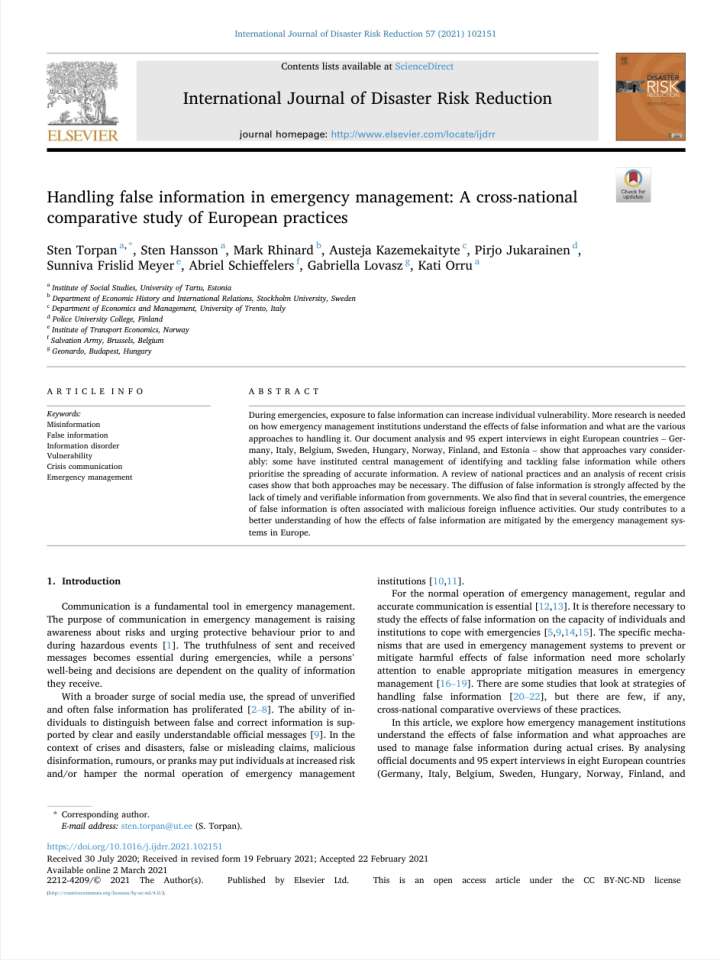Handling false information in emergency management: A cross-national comparative study of European practices
In this article, the researchers explore how emergency management institutions understand the effects of false information and what approaches are used to manage false information during actual crises. By analysing official documents and 95 expert interviews in eight European countries (Germany, Italy, Belgium, Sweden, Hungary, Norway, Finland, and Estonia), they offer a systematic, comparative understanding of the practices of institutional handling of false information in the emergency management systems in Europe.
The study suggests that in European emergency management systems:
- false information is not officially defined in policy documents;
- formal guidelines for tackling false information exist in only some countries, and there are no uniform practices of tackling false information in the context of crises;
- decentralised crisis management systems use decentralised responses to false information and vice versa;
- the diffusion of false information about crises is mainly seen as a result of the lack of up-to-date and officially confirmed public information; and,
- building and keeping the relationship of trust between institutions and the public mitigates people's vulnerability to false information, because it can prevent people from relying on untrustworthy sources.
Explore further
